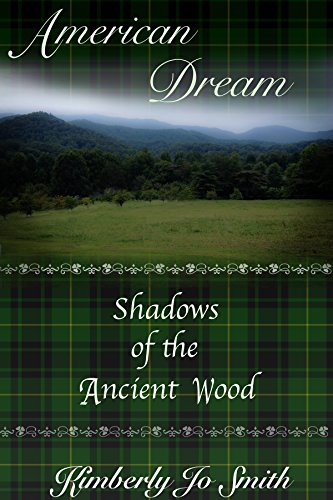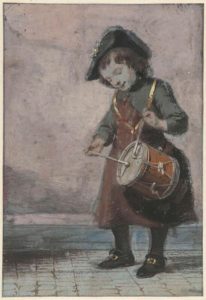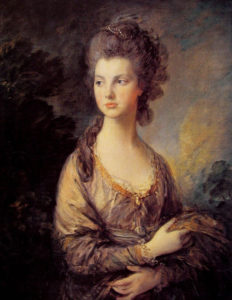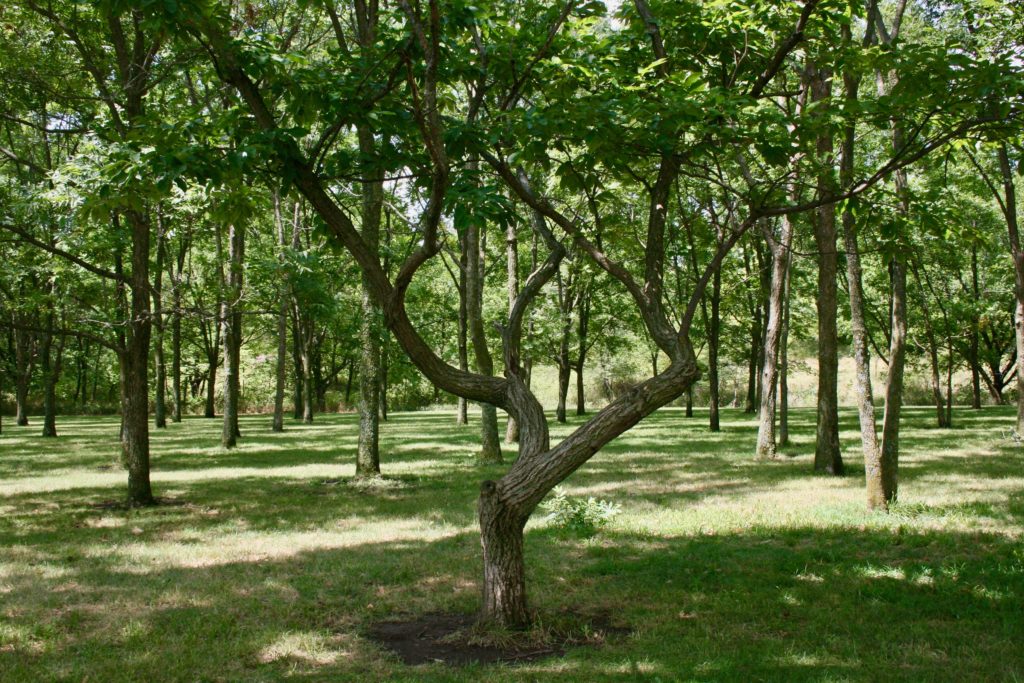Chapter One
1765
Swaying, so much swaying and then a jolt; such was the road from Blackpool to Manchester. It had been a dreary two days’ journey under the canvas of a gray and gloomy sky, the pitted road unforgiving in its design. It was neither smooth nor was it accommodating in its execution as a means of travel. Richard Carlisle surveyed his small family throughout miles of unsteady, washed-out road. Their lives had been a series of tumults and joys, tossed intermittently by the hands of fate.
Directing his gaze toward the small opening of their carriage, he glimpsed the emergence of green hills in the distance. They had left Manchester later than expected due to business, but they would be at Heatherfield Hall before nightfall. It was called his home at one time but never had he felt it was that true sense of home that one comes to identify with tranquility and peace. He had thought it a blessing and relief when his father cast them out five years before. Now his father was gone, and his brother, Micah, desired a life in the clergy; Richard was the only remaining heir. As hard as it was for him to return to bad memories, he was determined to bring change to Heatherfield, if only for his daughters.
Heatherfield Hall sat upon a majestic hill on the southwestern edge of Oldham, England, looming in its grandeur over the village of Saddleworth. Its crowning edifice displayed a grand exposition of wealth and status, pleasing to the eye of passersby who traveled through. The estate and land had been in the Carlisle family for many generations. Richard’s eleventh great-grandfather, Sir John Carlisle, was granted one hundred and fifty acres of fertile, green forested land in Oldham and Saddleworth by King Henry VII; a reward for his valiant support during the Battle of Bosworth’s Field. The bloody engagement had brought an end to the Wars of the Roses and ushered in the Tudor line of kings.
Sir John loved the rolling hills blanketed with heather so, that he decreed the property should bear the name of his favorite flower. He was known as an even-handed man who dealt fairly with those in his company and lent special care toward those subordinate to him. His son Edmund inherited Heatherfield, and from thence it transformed from a thriving estate to a house of darkness. For over three hundred years its walls bore witness to deceit, intrigue, lies, and murder. From wooded land and meadow to the halls and galleries of the mammoth building, the whole estate was etched in every crevice with ominous deeds of the past. There were secrets absorbed in every wall and doorway. Mists of the past mingled with paint and mortar, while unresolved deeds settled between the brick and stone.
As time progressed, the family gained in prosperity, expanding their fortunes in the mid-1700s through the wool and textile industry as well as agriculture. In 1755, LeGrande Carlisle inherited the estate from his father, but cared little for the running of it, leaving the business end of his holdings into the hands of his son Reginald and grandson Richard. Except for the occasional trip he would take on behalf of the estate, LeGrande spent much of his time in London. When Richard came of age, he married and began running Heatherfield alongside his father.
The carriage shook as it violently slipped in and out of deep impressions in the road, causing Mary and Grace to stir, then fall back to sleep. Richard withdrew from the reflections of the past, turning his gaze from the window to that of his small family. He surveyed each soul in the carriage, measuring the benefits of the move they were making, as well as the pitfalls. His mind raced with the many possibilities that lay before them, yet with that pattern of thought came a fear that made him want to turn around and go back to their small cottage. They had seen poverty in their refuge by the sea, but life was simple; it was free with no expectations of society and station. Richard turned his attention back to the window and continued to measure his early life.
He was completely enamored upon meeting Louisa when her family came to Heatherfield on business. She was the essence of beauty with brilliant, auburn hair, green eyes, and fair skin. She was tall, equal in height to him and had an abundance of grace and virtue. Upon their first meeting, she seemed withdrawn, but he acknowledged it as shyness, for soon she began to warm to him. The courtship had been short, but he knew that he wanted to marry her and felt sure that she loved him with all of her heart. They were married within a month, but before much time had elapsed, he knew that he had been blinded by his own heart, for almost after their first night together she seemed to withdraw again. Though their relationship was cordial, he knew that her heart lay elsewhere.
After giving birth to a third child Louisa took residence in a separate bedchamber, refusing to have any more children. From that time their marriage dwindled even further, and their lives at Heatherfield became one of coexistence. After they had been cast out of Heatherfield, their fragile relationship turned into one of complete and utter coldness. Louisa began to despise Richard because of his compassion toward others, and try as he might he could not motivate her to align herself with the simplicities of life; thus, she hardened her heart against life itself, seeming to grow old before his eyes.
Despite the coolness of their relationship, Louisa thrived on being a lady of leisure. She was close to Richard’s father; enthralled with his business mind, and she monitored every aspect of running the estate. Richard allowed it within reason until all reason fled. He at length concentrated his attention toward the grounds of Heatherfield, becoming lost in the therapeutic attributes of the gardens and the agricultural side of the estate. His other diversion was the time he spent with his two daughters, who attended him on every excursion out of doors, especially when it included what he had come to call the Ancient Wood.
The Ancient Wood was approximately fifteen acres of woodland just behind Heatherfield, adjacent to the gardener’s cottage and stables. It was filled with a variety of trees such as oak, birch, and rowan, most of which were hundreds of years old. The enchanting woods housed a menagerie of wildlife where Richard would take his daughters on outings, teaching them about the different plant and animal species. He educated them on the importance of every living thing and how delicate the balance between man and nature can be.
“It is always wise,” he would say to them, “to maintain a proper respect, and never exterminate any living thing unless it is for survival or in self-defense.” Richard smiled softly at the recollection, lifting his gaze to Grace, who sat across from him.
Grace’s coloring was much like her mother’s. She had fair skin and blue eyes, housed by voluminous dark lashes that extended out and curled upward, nearly touching her brow; however, her hair was more honey-blond in color. She was twelve, and from the time she was born was the jolliest of hearts. To Grace, every day was an adventure, and she thrived being out of doors. Though Mary had a pleasant disposition, she was more reserved and looked like Richard with her black hair, olive skin, and light blue eyes.
Richard peered out at the sky, which was now beginning to fade somewhat into late afternoon. They would be there soon. He took in a deep breath and released it slowly, trying to assure himself all would be different now that his father was gone. He surveyed each member of his family once more, wondering in his heart how the new changes would affect each one of them. As the carriage slowed, then pulled to a stop with a sudden jolt, Louisa, Mary and Grace snapped awake.
“We’re here?” Louisa asked earnestly, peering through the window and then frowning as she glimpsed Saint Chad Parish.
“Not just yet, barely a mile off. I told the driver ahead of time to make a stop here for a moment.”
“Whatever for?” she inquired impatiently.
Richard sighed heavily. “I wish to pay a visit to our son.”
“Oh, yes father! I would love to do that!” Grace said. “Remember when we would call him Lion for short? I thought it so fitting, as he did roar like a lion cub when he would cry!”
“Oh, this is too much Richard, really! My back is aching, and I need to be out of this carriage. Do you have no compassion?” Louisa said sternly. I ignoring his wife, Richard turned to Grace and smiled.
“Do you remember where your little brother was laid to rest?”
“Yes father, I remember.”
“Then do you go on ahead, and take Mary with you. I will join you presently.” Grace nodded and smiled as Richard patted her head. As the carriage door latched shut, he turned a weary gaze toward his wife.
“Compassion? Woman, you should never pronounce words that you do not know the meaning of. It is out of compassion that I have stopped to visit my son.”
“But he is dead,” Louisa sputtered wearily, “he is in no pain, he hasn’t been dragged over rough terrain for two days!” she said, trying to smooth wrinkles out of her dress. Though he was not a violent man by nature, it was all Richard could do not to beat her senseless.
“How can you be so cold? He was your son too.” Louisa shut her eyes quickly and tensed all over, making fists with her hands, and then she turned upon him. Her eyes were flashing with indignation as she smashed a fist against the side of the carriage.
“I never wanted him! It was the only thing I could do to get you to desist in your ramblings of having a son, a precious son,” she said changing her tone to sarcasm, “someone to take your place and reign over Heatherfield. Well, I did what you wanted, and he became your whole world. It was sickening how much time you spent coddling him as if he were a saint.”
“He was my son!” he said raising his voice in anger. “It’s a natural affection for a parent to love their child in such a way, but you would not know anything about natural affection, would you?” he exclaimed, kicking the door open. His heart was pounding from the rage that he felt as he exited the carriage and turned back to her.
“If your body aches so that you must retreat from this carriage, madam, then get out now! You can walk the rest of the way, or you can stay here and wait for us, but if I see your face anywhere near my son’s grave, I promise I will make you sorry for it.” Louisa leaned forward slightly as he spoke.
“I am only sorry he was ever born,” she said coldly. Richard slammed the door causing the horses to start so badly that the driver had to reign them in from moving forward.
Louisa slammed back against the seat, seething with hatred. Closing her eyes, she began to contemplate how quickly her temper was flaring. Richard had his limits, and if pushed too far it would avail her nothing, but she refused to be made to think of dreadful things such as childbearing and children. It had been her experience that giving of one’s self in such a way only benefitted the receiver and not the giver. She learned that all too well with Grace. Once the other children arrived, she had learned to master the game of manipulation, and that intimacy and children were pivotal bargaining tools. Even the death of Lionel proved useful to her, for it rendered her husband weaker in her eyes, thereby more manageable.
Richard rubbed his temples as Louisa’s words reverberated in his head, unable to fathom what would drive a woman to hate her child so. He walked down the narrow cobblestone lane that led to the graveyard beside the chapel, running his hand over a moss-covered stone partition. Stopping momentarily, he leaned both palms against the cool, rocky surface as he watched his daughters gather flowers. He still could not get Louisa’s words out of his head; “I am only sorry he was ever born,” she had said.
“What mother would say such things?” he said aloud. As he tried to sort out the anger he felt and put it to rest, he could not shake an uneasiness that was seeping into his thoughts and had been for some time. Questions about her lack of love for their children, especially their son, surfaced in his mind and fell into hesitant thoughts of possibility; the distance and coldness, how she would tense and want nothing to do with the babe when Richard would try and put him in her arms. Then there was a sense of relief from her when the child had passed on. A feeling of dread began to settle into his mind and heart, a suspicion unthinkable when it comes to the sacred responsibilities of the role of motherhood.
“No,” he shook his head as tears emerged, spilling down his cheeks, “no, I cannot think it. I will not think it.”
“Father, look!” the sweetness of Mary’s voice pierced the stone wall of dreaded thought, and Richard looked up to behold his daughters waving flowers over their heads.
“Father come! We’ve picked flowers and want you to lay them down and say a prayer.”
Richard waved to them as he walked down to the iron gate and passed through, casting all thoughts from his mind.




